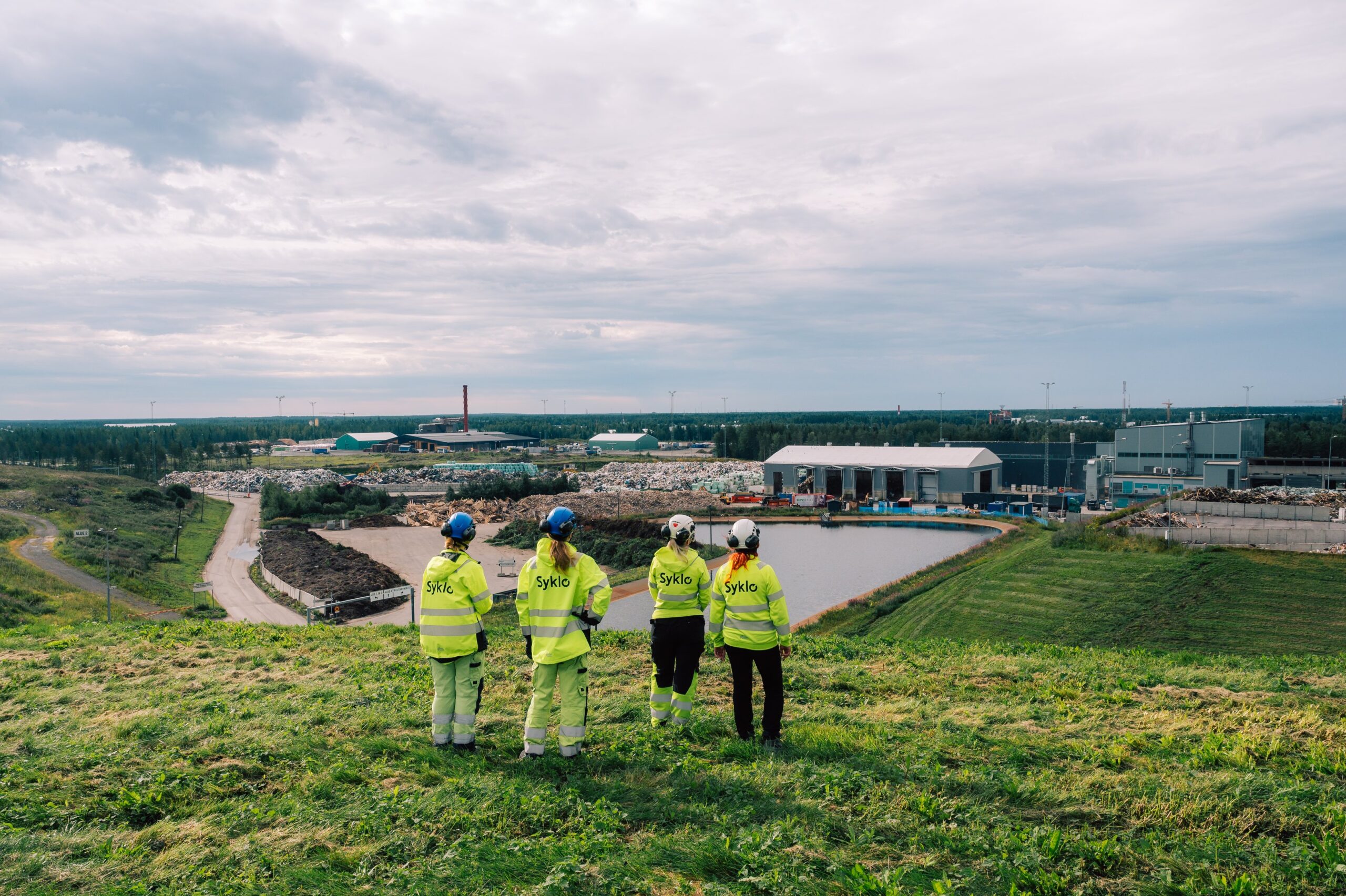
Syklo has been diligently identifying circular economy innovations
Syklo Oy started operations in June 2022. During the first year, there has been a lot of visible research at the Rusko sorting plant, but also a lot of invisible research of circular economy innovations. In this article, we will explain in more detail what Syklo has been researching in its first year.
We live in a culture of overconsumption. On a global scale, we use the natural resources that should be sufficient for the entire year in about seven months. For Finns, the overshoot day (in Finnish) is as early as March each year. The reasons for this include overconsumption of different materials, energy production, transportation, and food production due to our lifestyles. The problems caused by overconsumption are a huge waste of products and materials that could be suitable for reuse and recycling.
The massive increase in the amount of waste and the low level of material-based recycling is a global problem. Recycling is still rare in developing countries and proper waste treatment is not fully functional in Europe either. For example, in southern Europe, the capacity for waste treatment, with its energy utilisation, is inadequate or at least inefficient. Then again, even here in Finland, we cannot brag about dominating all the states of affairs when our overall recycling rate is below the EU targets and plastics, for example, are still poorly recycled back into new products.
The inadequacy of waste separation and the direct failure to treat waste lead to environmental pollution and littering. According to a study published in Nature Geoscience in August 2023, it is estimated that 500,000 tonnes of plastic waste ends up in the oceans annually, and the volume is constantly increasing.
However, there are only a few ready and workable recycling solutions. Syklo’s dream is to bring about a change in the way people consume, recycle, and conserve the planet’s natural resources. We are looking for solutions for the utilisation of different waste materials both domestically and internationally.
What kinds of circular economy innovations have been studied at Syklo?
Over the past year, we have researched several circular economy innovations that promote waste recycling, either by increasing the circulation of materials or by making it possible to close the cycles. Of these, some of our examples questions have been:
- How can complex multilayer films be separated in plastic recycling?
- What can be done with the fine alites that fall through the sieve, which are produced as a by-product of the milling of construction and demolition waste disposal machines?
- Can more be done to demolition wood than just burning it?
- Could power plant ash unsuitable to be used as fertilizer be utilised as a construction material?
- How can we get rid of the pathogens in sewage sludge while recovering its valuable phosphorus?
In addition, we have studied more efficient solutions for waste management through digital solutions. Examples questions concerning digital solutions include:
- Can waste flows be controlled with data?
- Is it possible to create a data platform in which the waste producer would know who the actual recipient and what the treatment method of the waste is?
Circular economy innovations are advancing in a passionate team
In a rapidly developing industry, team know-how is everything. During the first year, Syklo has recruited several new circular economy experts to promote circular economy innovations and develop existing operations. For example, we have invested in improving the usability of the Rusko waste sorting plant and in making the maintenance costs moderate.
We now process over 200,000 tonnes of waste annually, which is most of the waste in Northern Finland. Our goal is to triple the recycling rate by 2025 and to transform into a nationally and internationally operating circular economy company.
In addition, we have started reception of new separate fractions from all of our customers. We are striving to get as much of the fractions as possible into recycling and reuse. The main factors affecting the reuse and recycling rate include the purity of the recycled fractions and the degree of technological progress in the further processing of each material.

Syklo Oulu
Street address
Nahkatehtaankatu 2,
90130 Oulu
Ruskonseläntie 21,
90620 Oulu

Syklo Helsinki
Street address
Pohjoisesplanadi 39, 00100 Helsinki
